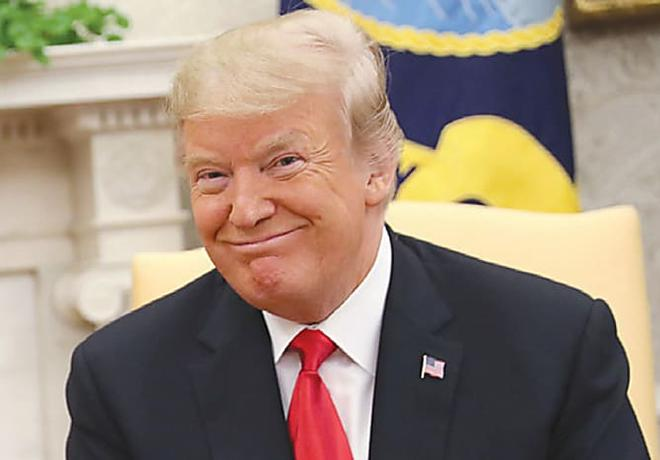G-7 zgadza się na minimalne opodatkowania globalnych firm
https://danieljmitchell.wordpress.com/2021/05/27/bidens-class-warfare-agenda-is-bad-news-according-to-academic-research-on-taxes-and-growth/
https://danieljmitchell.wordpress.com/2018/06/11/trump-and-the-g-7-right-outcome-wrong-reason/
Kraje G-7 zgodziły się na propozycję Prezydenta Joe Bidena dotyczącą 15% minimalnego podatku od osób prawnych.
Obecnie firmy mogą zakładać lokalne oddziały w krajach, które mają niskie stawki podatku od osób prawnych i deklarować tam zyski. Oznacza to, że płacą tylko lokalną stawkę podatkową, nawet jeśli zyski pochodzą głównie ze sprzedaży dokonanej gdzie indziej. Jest to legalne i powszechnie stosowane, choć zarazem uważane za nieetyczne.
Eksperci twierdzą, że nadal pozostają przeszkody w tej sprawie.
Zgodnie z umową członkowie G-7 poprą globalną minimalną stawkę podatkową od zysków firm i nowy sposób podziału dochodów z opodatkowania największych i najbardziej dochodowych firm na świecie.
Grupa G-7, w skład której wchodzą Kanada, Francja, Niemcy, Włochy, Japonia, Wielka Brytania i USA, uzgodniła, że firmy powinny płacić minimalną stawkę podatkową w wysokości co najmniej 15% w każdym z krajów, w których prowadzą działalność.
Głównym celem krajów europejskich było podniesienie podatków od dużych firm, takich jak Google Alphabet Inc. i Facebook Inc., z których większość ma siedzibę w USA.
W tym celu konieczna jest zmiana istniejących przepisów, ponieważ były one zaprojektowane z myślą o czasach, w których firmy musiały mieć dużą fizyczną obecność w danym kraju aby móc tam zarabiać.
Przeszkody dotyczące tych ustaleń mogą być w Senacie USA. Republikanie mogą mieć obiekcje. Na zmianę prawa potrzeba 60 głosów poparcia (50 Republikanie – 50 Demokraci).
Senator Mike Crapo , członek senackiej Komisji Finansów, wysłał Janet Yellen (Sekretarz skarbu USA) list, w którym wyraził zaniepokojenie, że Kongres sceduje amerykańskie prawa do opodatkowania dochodowych firm amerykańskich zagranicznym jurysdykcjom. Republikanie z Senatu nie popierają żadnych podwyżek podatków.
.......................................................................................................................
Consistent with these principles, please address the following questions:
1) A Pillar 1 agreement would require Congress to cede U.S. taxing rights over profitable
U.S. companies to foreign jurisdictions. What would the United States receive in return?
What are the sound tax principles underlying Treasury’s proposed Pillar 1 approach?
How does the determination that a company is large and profitable justify the reallocation
of U.S. taxing rights to certain foreign jurisdictions? How sustainable would such an
approach be?
2) Please provide Treasury’s analysis of companies that would be identified as in-scope
using the proposed Pillar 1 quantitative scope approach based on publicly available
information, such as from the Compustat database. Please provide such information
assuming a $10 billion revenue threshold and 15 percent profit margin, as well as under a
$20 billion revenue threshold and 10 percent profit margin, both with and without carveouts for extractives, financial services, and real estate (with the carve-outs as defined in
the Report on the Pillar 1 Blueprint). Treasury’s summary should include an estimate of
the amount allocated from U.S. companies to foreign market jurisdictions as well as
amounts reallocated from foreign jurisdictions to the United States.
3) An OECD agreement that allows continued imposition of DSTs would result in unfair
discrimination against U.S. companies, which is plainly inconsistent with bipartisan
objectives that serve as the basis for the negotiations. Will Treasury commit to accept
only an agreement that requires foreign countries to repeal (and the EU to refrain from
enacting) DSTs or similar unilateral measures once an initial OECD agreement is reached
(currently scheduled for July 2021)?
4) If our foreign competitors are not subject to Pillar 2, U.S. companies would be at a
significant competitive disadvantage in the global marketplace should the
Administration’s GILTI proposals become law. The United States already moved first by
enacting GILTI. Will Treasury and the Administration commit not to take the second
step of making GILTI far more stringent before other countries even take their first step
of enacting a global minimum tax? Will Treasury and the Administration also commit
that no agreement will be reached on Pillar 2 if the United States’ biggest competitors,
like China, are not subject to the same terms as the United States?
The issues being addressed at the OECD are complex, and I appreciate the work you and your
team are doing to make progress and seek areas of agreement. However, the stakes for the
United States and our national economy are high. The United States should not be willing to
accept an agreement that continues to target American companies and lets our biggest
competitors off the hook. Nor should the United States act to raise the GILTI rate – the sole
international minimum tax in place – before our OECD competitors take action to implement
their own global minimum taxes. These issues must be resolved in order for Congress to
understand whether the current strategy will discriminate against U.S. companies and adversely
affect the U.S. fisc. They are even more significant now as the success of American businesses
at home and abroad is critical to our country’s economic recovery from the largest economic
shock on record stemming from the COVID-19 pandemic.
Thank you in advance for your prompt and detailed response to this request. Please provide your
reply by Friday, June 4, 2021.
Mike Crapo
..................................................................................................
Ale z powodu cenzurowania konserwatystów, a przede wszystkim Donalda Trumpa być może ten pomysł w końcu się urzeczywistni.

Wszystko będzie zależało od Donalda Trumpa, którego sugestia w tej sprawie będzie miała znaczenie.
Cenzura jest bardzo kosztowna…..
...
Inne tematy w dziale Gospodarka

